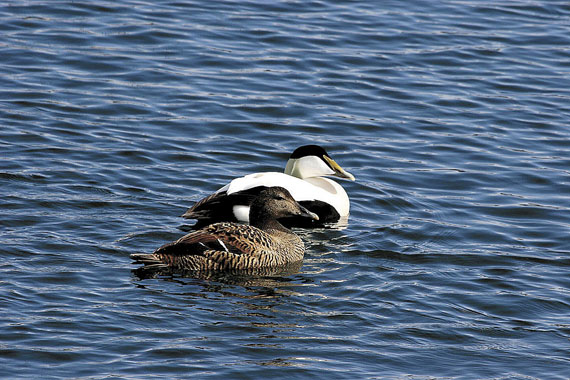
The Canadian Wildlife Service (CWS) has informed the Government of Nunavut (GN) of a third suspected case of avian flu in Nunavut discovered during surveillance testing. The latest case was detected in a herring gull on Tukarak Island near Sanikiluaq.
To date, there have been detections of avian influenza in wild and/or domestic birds in all 10 provinces, the Yukon and widespread detections in the United States.
The risk of avian influenza infection in the general public is considered low. There is no evidence to suggest that the avian influenza virus can be transmitted to humans through the consumption of fully cooked game birds or eggs. In general, human cases of avian influenza are caused by close, prolonged contact with infected live or dead poultry or contaminated environments. While the risk of human infection with avian influenza viruses is low, individuals should always use basic hygienic precautions when handling wild birds.
Avian influenza or bird flu is a viral infection that is highly contagious among birds and is found in domestic poultry and wild birds including raptors, gulls, terns, shorebirds, ducks, geese, and swans. Signs that a bird may have avian influenza include:
- Nervousness.
- Trembling or lack of coordination.
- Swelling around the head, neck and eyes.
- Diarrhea or sudden death.
Multiple dead birds in one location are a sign that the virus is present.
As many Nunavummiut actively engage in wild bird and egg harvesting, it is important to know the key precautions that should be taken to limit the spread of disease and minimize risk to people. Basic food safety measures are recommended for hunters and other bird handlers to reduce the risk of illness and the spread of the virus include:
- Wearing gloves.
- Washing hands with soap and warm water.
- Clean soiled clothing, and equipment as soon as possible.
Guidance on best practices to reduce the risk of human infection has been developed by the Public Health Agency of Canada (PHAC) and the Government of Nunavut and can be accessed here.
If you notice any unusual death or illness in birds, contact your local conservation office. If you feel very sick after handling a bird, contact your local health centre. For more information, please refer to the Government of Canada’s website.
